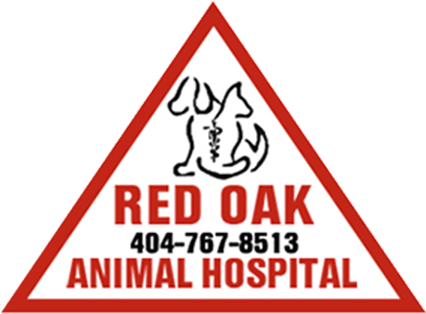Feline Upper Respiratory Infection
Signs of feline upper respiratory infection (URI), including one or more of the following: sneezing, congestion, runny eyes or nose, loss of appetite, lethargy, fever and/or ulcers of the mouth or eyes. Most causes of URI in cats are viral and the two most common causes are feline herpes virus and feline calicivirus. There is a test called a respiratory PCR panel that can be run from swabs of the oral cavity and ocular conjunctiva that can help determine the cause of the symptoms. However, this test is expensive and takes 3-5 days to complete, so we generally reserve this for cats with significant and/or persistent symptoms. Fortunately, most cats with URI symptoms will recover with supportive care at home; however, some kittens and immunocompromised cats will require hospitalization and more aggressive treatments.
The following are things you can do at home to help nurse your cat back to health:
- Offer smaller meals of higher reward foods frequently throughout the day, such as canned foods or boiled chicken. Also consider microwaving the food to heat it up and improve the smell of the food.
- Add small amounts of warm water to the food to encourage good hydration.
- Use a nebulizer or keep your cat in the bathroom with the hot water running in the shower and the fan off to moisten respiratory secretions and help him/her to eliminate them when they sneeze.
- Reduce stress by providing a refuge away from other animals with a clean litter box, fresh water and plenty of love.
- Add the Nutramax supplement Imuquin to your cat’s food daily to reduce the duration of symptoms and boost your cat’s immune system in a natural way.
- Although significant efficacy has not been demonstrated, you may consider using Lysine 250 mg by mouth twice per day. This can be purchased as a treat if they eat well or can be purchased over the counter as a capsule (500 mg) in which case you will have to mix ½ capsule with some food twice per day.
- Administer antibiotics if directed by your veterinarian – antibiotics are often not necessary, but are used in cases of fever, breathing difficulty or when signs are severe.
The following are signs that your pets needs to be seen and/or have additional treatment:
- Loss of appetite > 24 hours.
- Signs of ulcers in the mouth (hypersalivating, drooling) or in the eyes (squinting, red and painful appearing eye).
- Severe lethargy, vomiting or diarrhea.
- Rapid or labored breathing
- Copious mucoid discharge from the nose.
Please call if you have any questions or concerns. Some cats require supportive care treatment to help them fight off the infection and diagnostics such as respiratory PCR and chest radiographs will be recommended if necessary. Expect signs to persist for anywhere from 4 days to several weeks. Avoid interaction with other cats and keep your pet indoors only during this time.
Phone:
Address:
4895 Ben Hill Road, College Park, GA 30349
